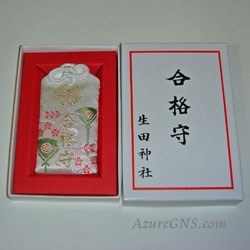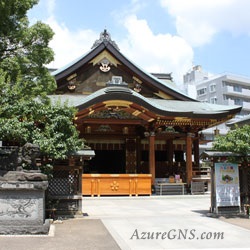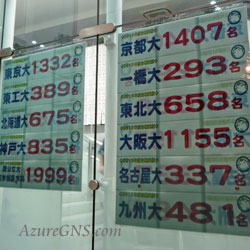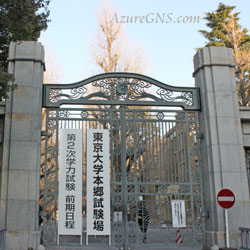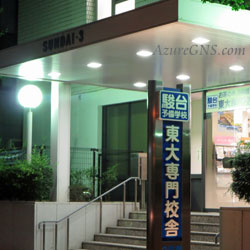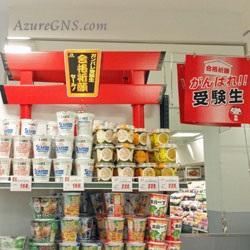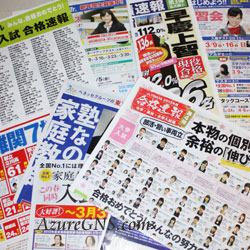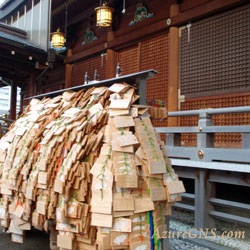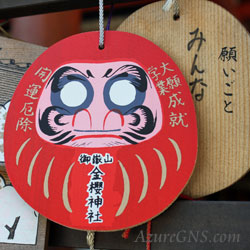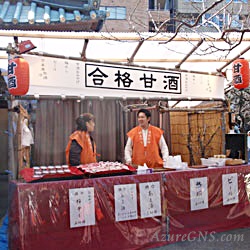(1月から3月)
Juken-shizun;
An Examination Season
(from January to March)
●試験 examination
●入学試験 entrance examination
●受験する (to) take an examination; (to) sit for an examination;
(to) undergo an examination; (to) go through an examination
●受験に合格する (to) pass an entrance examination
●受験に失敗する (to) fail an entrance examination
●受験生 student preparing for an entrance examination
●受験者 candidate for an examination; examinee
●受験科目 examination subject; subject of an examination
●受験料 examination fee
●受験票 applicant’s identification card
●受験番号 examinee’s (seat) number
●受験資格 qualification to take an examination
●受験戦争 examination war
●受験地獄 (the) examination hell
●受験産業 entrance examination industry
●塾 juku; cram school; private tutoring school; preparatory school
●予備校生 yobiko; college preparatory school; college preparation school
●浪人生 ronin-sei; high school graduate who failed an entrance examination and is preparing for the next year’s opportunity.
◆日本の教育水準は高く、識字率は世界トップレベルで99.8%と言われています。
Educational standards in Japan are very high, and the literacy rate is said to be 99.8% which ranks as the best in the world.
◆日本の義務教育は小学校6年間と中学校3年間の合計9年間です。
Compulsory education in Japan is 9 years in all: 6 years in elementary school and 3 years in junior high school.
◆近年、高校への進学率は100%近くになっています。
In recent years, the ratio of students who went to senior high school has reached almost 100%.
◆大学・短期大学・専門学校への合計進学率は50%以上です。
More than 50% of high school students go on to universities, colleges, junior colleges, or technical colleges.
◆受験戦争が過熱した原因のひとつは、学歴を将来の成功への鍵と考える信仰でした。
One of the reasons why the examination war intensified was the belief that an educational background was the key to success in the future.
◆日本では大学で何を学んだかより、どの大学を出たのかの方が重要視されることがあります。
In Japan, people sometimes make more of which university one graduated from rather than what one actually studied.
◆戦後のベビーブームで生まれた子供達が受験期を迎える頃、受験地獄は一層激しくなりました。
When baby boomers after World War ll took entrance examinations, the examination hell became more intense.
◆受験戦争の低年齢化が進み、幼児に熱心に勉強をさせる親もいます。
Very young children are sometimes involved in the entrance examination war, and some parents force their small children to study very hard.
◆有名私立幼稚園や小学校の受験は「お受験」と呼ばれます。
Taking entrance examinations of famous kindergartens or elementary schools is called “O-juken”.
◆特に、有名私立中学、高校、大学へエスカレーター式に進学できる幼稚園や小学校では受験倍率は高くなっています。
They must survive fierce competition to pass the entrance examinations especially for kindergartens and elementary schools attached to prestigious junior high schools, senior high schools, and colleges.
◆その様な幼稚園や小学校に入学する為の塾まで存在します。
There are even preparatory schools to teach how to pass entrance examinations for such kindergartens and elementary schools.
◆偏差値の高い大学への進学実績を見ると、中高一貫教育の私学の生徒が有利だということが分かります。
Seeing the results, we find that more students from combined private junior high and senior high schools pass college and university exams with highly competitive admissions.
◆私立校は最初から同レベルの学力の子供達を選抜することができるので、教師達は授業で成果を上げやすいのです。
At first, private high schools select children with almost the same academic level, so teachers can achieve better results in class.
◆公立校に比べ柔軟性のあるカリキュラムで授業を進めることができます。
They can also give lessons in a more flexible curriculum in comparison to public schools.
◆そのため、高校2年生や3年生になると受験問題の演習に多くの時間を費やすことができます。
Therefore, they can spend a lot of time to have students in the 11th and 12th grades solve practical questions for entrance examinations.
◆良い大学に行くために中高一環教育の有名私立中学を目指す小学生が熾烈な競争を繰り広げています。
There is an intense competition between elementary pupils who want to go to famous combined private junior high and senior high schools in order to enter good universities.
◆受験生の大半が塾や予備校に通ったり、家庭教師に勉強を教えてもらったりしています。
Most of the students preparing for entrance examinations go to preparatory schools, or they are taught by private tutors.
◆入学試験に失敗して、翌年の機会に備えて準備をする人を「浪人生」と呼びます。
A high school graduate who failed an entrance examination and is preparing for the next year’s opportunity is called “ronin-sei”.
◆浪人生のほとんどが予備校に通い、再度大学受験のために勉強します。
Most ronin-seis go to college preparatory schools, and study for the next entrance examination.
◆私立校や塾が非常に少ない地方での受験は、公立校の教師の腕にかかっていると言えるかもしれません。
On the other hand, success of the entrance examinations depends on teachers’ skill at public high schools in the countryside where there are few such private high schools or preparatory schools.
◆学校が週5日制になってからは、本来休日である土曜日に無給で自作の教材などを作り、生徒に補習を行っている先生も多くいます。
Since the time the five-day school week system started, many teachers make original teaching materials, and give supplementary lessons without pay on Saturdays which, by law, are their days off.
◆このような熱心な先生の他に、受験参考書、受験マニュアル本、通信教育などが、塾に通えない生徒の大きな助けになっています。
Besides these eager teachers, study aids and manuals for entrance examinations and correspondence education are very helpful to the students who cannot go to preparatory schools.
◆受験の詰め込み教育を助長する点や人間を点数により選別する点を疑問視する声も多くあります。
Many people are doubtful about entrance examinations which make the cramming system of education intense, and that it sorts people by scores.
◆あまりに熱心に受験勉強をしすぎて燃え尽き症候群になり、入学した後勉強をしない生徒もいます。
Some students study so hard that they suffer from burnout and don’t study after they enter schools or colleges.
◆このように受験戦争が過熱すると、生徒間の競争を煽るような風潮が批判され始めました。
When the examination war became too intense, people started to criticize the climate where competition between students was stirred.
◆そこで、学校内の過度な競争をなくし生徒の自発的な勉強意欲を促す「ゆとり教育」が始められました。
And then, “Yutori-kyoiku” started to motivate students to study voluntarily without excessive competitions at school.
◆しかしゆとり教育による学力低下が指摘されるようになり、今改めて競争の大切さが見直され始めています。
However, it is pointed out that Yutori-kyoiku has caused a decline in academic standards, so now people are re-evaluating the importance of competition.
◆競争の代表例である受験の良い点は、受験が生徒の勉強への良い動機付けになり、また合格すると「努力は報われる」という実感を持てることです。
Tangible advantages of entrance examinations are these: students are motivated to study for entrance examinations, and they realize “their efforts are rewarded” if they pass them.
◆塾や予備校などの受験産業は数十年前までしばしば批判対象になることがありました。
Until some decades ago, the entrance examination industry, like cram schools and college preparatory schools, was often criticized.
◆現在ではこれらが学力向上に大きな役割を果たしていることは紛れも無い事実です。
Nowadays, it is an obvious fact that they play an important role in increasing academic competence.
◆最近では少子化と学校数・募集人数の増加により競争は緩和の傾向にあります。
Recently, competition has tended to ease because of the fewer number of children and the increase in the number of schools and the number to be admitted.
◆また入学試験は年々多様化してきており、一般入試、推薦入試、AO入試などがあります。
And entrance examinations have become more diversified year after year, such as general entrance examinations, recommendation entrance examinations, and AO entrance examinations.
◆このように受験の形態は変わりつつありますが、日本では未だに学歴を重視する傾向は顕著です。
In this way, the system of entrance examinations has been changing, but educational background still counts for a lot in Japan.
◆これからも受験は学生にとって一大イベントであり続けそうです。
Entrance examinations will continue to be a big event for students in the future.
(より詳しい情報は「我が家の受験シーズン」と「受験に縁起の良い食品」をご覧下さい。)
(Please see “My Entrance Examination Season Experience” and “Lucky Food for Entrance Examinations” for further information.)
Copyright (C) Azure Global Network Services. All Rights Reserved.
